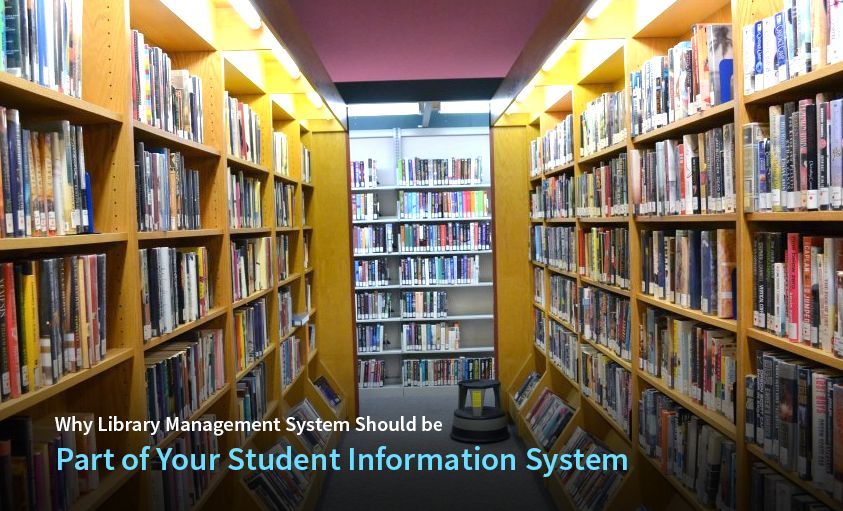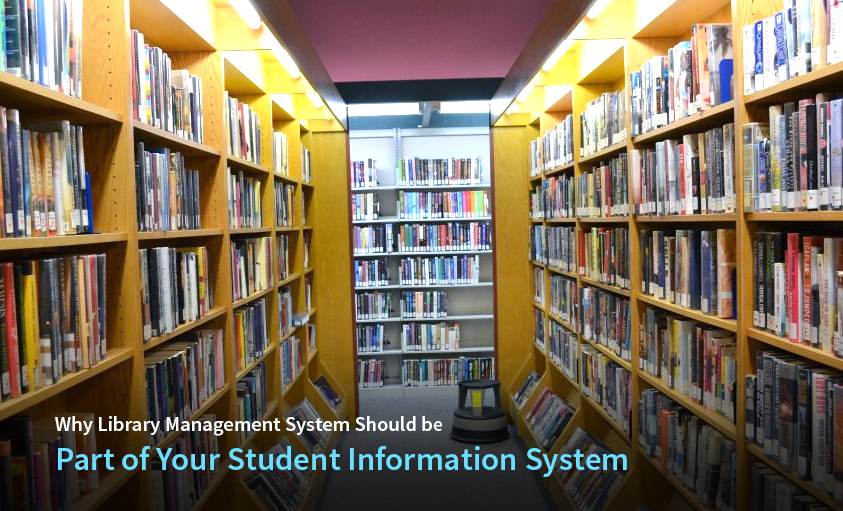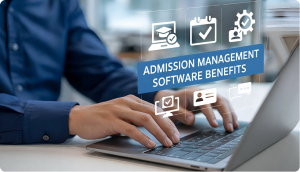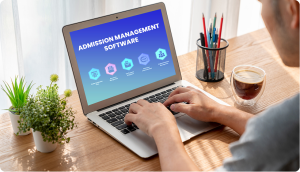
The Benefits of Library Management Systems
The best library management systems are usually cloud-based allowing them to be easily integrated on the college website. With a login-based access, it enables students and staff to easily search and reserve reference material from anywhere. With every task related to library management getting automated, it eliminates repetitive work, makes each process error-free and increases efficiency tenfold.
There are numerous reasons why every campus should have library management software but let’s look at the top 5.
1. Slashes Operating Costs:
Libraries run through manual processes have high expenditure in paperwork, manpower, printing cost etc. on a daily basis. Putting everything into a digital system frees staff both in time and material expenditure. Searching and finding material is no longer time-consuming as it is available in just a matter of a few clicks. Switching over to a paperless solution leads to better efficiency and cost-saving.
2. Efficient Cloud-based Smart Library:
A Smart Library is not just better organized but one that allows for interlibrary loans if a partnership with other campuses exists. A library management software can streamline multiple independent modules such as acquisition, cataloguing, stock verification, circulation, serial control, binding, indexing, etc. An effective library management system usually is built on cloud computing allowing for quick access over the internet and allows non-tech users to easily adapt to its intuitive interface.
3. Increases Staff Productivity:
Automating day to day work processes ensures that staff use their time to include more activities that can benefit the student and faculty community. The self-updating record facility due to it being digital and database driven ensures dynamic reporting, material circulation and user tracking. Automated SMS alerts and notification do not need library staff to manually manage delay on due dates and late fee collection. Integration with student management system keeps the admin office also aware of defaulters.
4. Maintains Data & Fast Reports:
Data is vital for any educational institution and the college library is no exception. Manual reports take days if not weeks and face the risk of data-entry errors. For proper documentation, a library management software is indispensable. Complete catalogue inventory, Books issue, reissued, unreturned and available reports can be generated in just a few seconds. The complete library list for each student can be made available in just a single click. Since every single interaction with the library management system makes a notification of the transaction in the storage database, creating reports for insights into any process is simple.
5. Students Expect 24×7 Connectivity:
This is the digital age of connectivity, almost all processes in education management has gone online, right from online applications to student results. The digital age requires college libraries to be digitally connected with the student’s academic life. No longer do students need to physically come into the campus library to check availability of reference material. Integrating the college library software into student portals, either through the college website or mobile
What an Integrated Library System (ILS) does
An ILS is a package of library services that include many functions. The library management system features are flexible to an institution’s needs. Since software is expensive, an institution can evaluate all the features provided by a service provider and then decide on the modules that will suit their purpose.
The library management system project must start with the Acquisition module. This module generates the purchase order, cancels the purchase order if needed, sets up reminders, receive the purchase order and generates invoices. Data can be instantly viewed at any time by entering purchase order no. or invoice no. or even the suppliers name.
Cataloguing of different media and the ability to define the specification for each media. For example, for books there is automatic ISBN cataloguing.
Barcode is another one of the library management system features that are essential if the number of transactions exceed several hundred each day. Barcode generation and printing process can be built into the system. Though the software can also work without barcode functionality.
Provide a multi-user environment where members can login at the same time into the library management software without any reduction in the speed or ease of use. This allows for multiple access points on campus or even through mobile apps. Students can easily search using book author, title, category wise etc to quickly find what they need.
Automated circulation management is another important library management system feature that takes care of this vital process with no manual intervention. It keeps a track of who has what and when the items are due and sends alerts both to the borrower and library staff when lending time is exceeded.
The other library management system features include fee collection management, reserve shelf management (if the library allows members to reserve books that are in circulation), member management, standard reports with an option to include customized reports.
Questions to Ask an ILS Provider
When evaluating a library management system project for an educational institution, it is recommended to ask your provider the following questions
- Does the library management software include modules for cataloguing, circulation and reporting? A good system will have an Online Public Access Catalogue (OPAC) that allows students to make a search.
- Will the library management system work with other systems that the institution uses? It should be able to be integrated with the existing student management system. For example, the student borrowing records and late fee records should be listed along with the student profile in the SMS.
- There should be a web-based interface that integrates library homepage and web resource access as well as offsite access for students if that is within the institution’s requirements.
- Ask what training and support will be provided. In most cloud computing systems, technical updates should be provided and be included in the maintenance contract.
Choosing the right software for your college library, whether upgrading or starting off for the first time can be a daunting task. The balancing act between the best software and your available budget is a real thing. Not all providers are equal in their capability to modernize your college library.
iTech India has been providing customized software solutions since 2003. We specialize in Education ERP with a product portfolio built on best practices. We have distinct product offerings for different segments from schools, colleges and coaching institutes. With a large team of technically qualified professionals and mentored by educational experts and technology architects, we are recognized for our cutting-edge ERP solutions. Speak to us today to know more about how our solutions can fit your needs.






